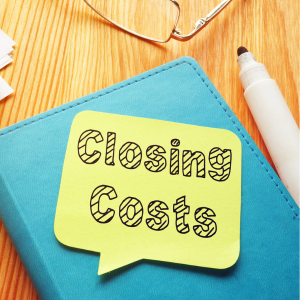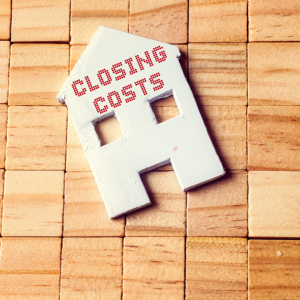
If you’re selling a home in Baltimore, MD, you may wonder if sellers pay closing costs. While buyers cover most fees, sellers often contribute too. At CR of Maryland I LLC, we help you understand these expenses to prepare you for closing day.
Understanding Closing Costs in Maryland
Both buyers and sellers need to know about closing costs in Maryland. These fees are a normal component of buying and selling a home, and they can have a big effect on how much money you make from the sale. In Maryland, closing costs usually include things like title insurance, agency fees, and attorney fees. Knowing what these are and who pays for what can aid both buyers and sellers, especially in places like Baltimore City. This part goes into great detail about closing costs, outlining what they are and what they usually include.
What Are Closing Costs?
Closing costs are the fees that are paid at the end of a house sale. These charges are very important in real estate transactions since they indicate the end of the house sale process. These expenses are neither minimal nor uniform in Maryland; they vary slightly depending on your location and the property you purchase. But in general, they are made up of a lot of different costs, such as the fees for starting the loan, the fees for the appraisal, the title insurance, and the expenses for the house inspection reports, to name a few.
Most of these fees are typically paid by the buyer, especially those directly tied to loan processing. Sellers also have to pay their share, which usually includes real estate agency commissions and sometimes requires making concessions to assist the buyer in covering expenses. Title insurance is another important part of the charges that the buyer has to pay, which are mostly tied to the lender. This insurance protects you from future claims that could put your ownership at risk if there are still problems with the title at closing.
An additional consideration during Maryland real estate transactions is who will pay for HOA fees at closing. These fees are typically prorated between the buyer and seller. Sellers are generally responsible for any outstanding dues up to the closing date, while buyers take over the HOA fees from the day they officially become the new owners. Understanding this breakdown helps both parties avoid surprises and ensures the financial transfer is handled smoothly.
Knowing how much these fees are will help you negotiate and plan better. A lot of the time, buyers try to pay some of these costs by changing the price or making other financial agreements. Many people use this information to help them make realistic budgets, which requires experts, lenders, and lawyers to communicate strategically. It is crucial to remember that closing costs usually range from 2% to 5% of the property’s sale price. However, these numbers are not set in stone and can change based on the specifics of the sale, the price of the home, and the local real estate market.
Also, it’s helpful to know how closing costs are broken down so that both buyers and sellers know what they need to do. For instance, smart sellers in Baltimore might use this information to their advantage when talking to potential buyers. They might even pay for things to speed up the closing process. In conclusion, closing costs are a big part of selling a house in Maryland. People need to think about them carefully and understand them so they can make good financial decisions.
Common Components of Closing Costs in Maryland
In Maryland, closing costs encompass various components that guarantee all parties fulfill their legal and financial responsibilities at the conclusion of a real estate deal. Grasping these essential elements enables both sellers and buyers to plan their finances effectively and steer clear of unforeseen expenses. Across Baltimore city and throughout Maryland, these elements tend to remain consistent, though minor variations may arise from local market dynamics or specific transaction situations.
Title insurance is crucial in managing closing costs, offering a safeguard against potential future disputes regarding the ownership of the property. In transactions, both buyer and lender policies can come into play, with costs usually falling on the buyer, though there are instances where these expenses can be negotiated within the sale contract. Title recording fees play a crucial role in guaranteeing that the legal transfer of ownership is accurately recorded with the state.
Expert fees and commissions represent a significant part of the seller’s closing expenses. The commission usually falls between 5% and 6% of the home’s sale price, divided between the real estate professionals representing both the buyer and the seller. Although this might appear significant, the knowledge and connections that experts provide frequently validate their expense, leading to more efficient transactions and possibly elevated sale values. Moreover, legal fees may be necessary for obtaining advice or for the preparation and examination of documents, although this can differ based on the complexity of the transaction. It is essential to guarantee that all documentation is precise and legally enforceable, as mistakes may result in expensive conflicts in the future.
Typically, the buyer is responsible for inspection fees and appraisal costs, which are crucial for verifying the home’s value and condition prior to completing the purchase. Appraisals are frequently mandated by lenders to confirm that the property’s value aligns with the loan amount being sought. Additionally, other costs may include prepaid items like property taxes or homeowners’ insurance premiums, typically prorated according to the duration the seller held ownership of the home throughout the year.
Every element is crucial, and grasping their significance can help avoid unexpected issues and enable more seamless, successful transactions. In Baltimore and throughout Maryland, understanding these elements allows sellers to handle their duties proficiently while maintaining compliance and facilitating smooth sales. For buyers, being informed fosters financial readiness, helping them to make educated offers. By implementing a well-thought-out plan and understanding these expenses, both parties can navigate transactions smoothly and confidently, paving the way for successful property transfers.
The Seller’s Responsibility in Maryland

In Maryland, understanding the responsibilities of sellers is essential when considering a home sale, especially in relation to closing costs. Closing costs play a crucial role in real estate transactions, and their allocation can differ significantly between the seller and the buyer. In Maryland, especially within the Baltimore city region, sellers often face various fees, such as expert commissions and possible closing costs, which can significantly influence the final financial results of their home sale. Understanding these responsibilities enables sellers to align their expectations and negotiate successfully in the competitive Maryland real estate landscape.
Do Sellers in Maryland Pay Closing Costs?
When selling a house in Maryland, especially in the lively Baltimore city area, sellers may have to think about how much they would have to pay for closing fees. Buyers usually pay most of the closing costs, but sellers are not free from this financial commitment. In Maryland, sellers usually have to pay the costs that real estate professionals charge, which are called commission fees. These are a big part of the closing costs, and they usually make up about 5% to 6% of the sale price of the home. The buyer’s and seller’s experts split them. This charge pays real estate brokers for their knowledge of the market, their expertise, and the connections they have made to make house sales go more smoothly.
Sellers may have to pay other closing costs in addition to agency fees, but these are usually less than what the buyer has to pay. Sometimes, sellers agree to pay some of the buyer’s closing costs to encourage a faster or better sale. You don’t have to make this compromise, but it can be a useful tactic in talks, especially in a competitive real estate market like Baltimore’s. The seller’s need to close the sale quickly, the property’s marketability, and the present situation of the real estate market are all considerations that go into the choice to pay these extra costs.
Additionally, certain closing costs may be incurred for legal or state-related duties, such as paying off outstanding taxes or clearing any liens that are still in effect before transferring possession of the property. Before putting their property up for sale, sellers in Maryland should also consider the potential expenses of any repairs or renovations made to the home. These fees can be included in the closing process, which can affect the entire financial transaction.
Knowing these small details and becoming ready for them will make the process go more smoothly and may help the seller get the most money from the sale of their house. This includes understanding how long a seller can stay in the house after closing, which can affect moving plans and final negotiations. Sellers may better plan and carry out their real estate deals by knowing a lot about these things, which will help them get the most money for their properties.
Sellers typically cover costs such as expert commissions and title fees. At CR of Maryland I LLC, we buy houses in Baltimore and other cities, making the process quick and stress-free.
How Much Are Seller Closing Costs in Maryland?
The expenses associated with closing for sellers in Maryland, particularly in Baltimore City, fluctuate based on various factors, yet certain elements consistently impact these costs. The commissions paid to real estate professionals represent the largest portion of closing costs for sellers, usually ranging from 5% to 6% of the sale price of the home. This percentage reflects the skills and dedication of the real estate professionals engaged, enhancing the property’s attractiveness and easing the process for both parties involved. This fee is typically divided between the experts representing both the buyer and the seller.
In Maryland, common closing costs for sellers typically include transfer taxes, title recording, and settlement fees. These costs can often be negotiated between the buyer and seller, influenced by local customs and market conditions. The purpose of these fees is mainly to guarantee that the transfer of property ownership is legally valid and well-documented. Transfer taxes are typically mandated by the state, but the rates can vary somewhat based on the locality. For instance, Baltimore City and other densely populated regions often experience different rates compared to more rural areas.
For sellers, staying informed about these potential costs enables more effective financial planning and greater flexibility in negotiations throughout the sales process. Furthermore, sellers may face charges for clearances or certifications required to ensure that the property complies with local codes and standards. This includes outstanding utility bills or HOA dues that must be resolved before the sale can be completed. Addressing these points can facilitate the transfer, resulting in a more seamless transaction overall.
Some sellers opt to boost the attractiveness of their sale by offering warranties or guarantees on specific home systems or appliances. While not mandatory, these incentives can accelerate sales, especially in a competitive property market. Grasping the details of seller closing costs in Maryland provides sellers with the insight necessary for strategic planning and effective execution in their home sales. Whether dealing with mandatory costs, such as expert commissions, or minor expenses, like local transfer taxes, sellers who understand these financial intricacies can more effectively navigate the nuances of real estate transactions, yielding a more favorable and financially rewarding outcome.
Breaking Down the Common Fees in Maryland

Special closing costs apply to sellers in Maryland, especially in Baltimore, which is a very busy city. Some of these costs are expert fees, attorney fees, and other legal costs related to recording the title. Getting these fees under control is important for a smooth real estate deal where sellers know what their financial obligations are. If sellers know about title recording and closing fees, they can better manage their costs and negotiate with buyers, which could lead to a successful home sale.
The Role of Agent Fees and Attorney Fees in Closing
When you sell your home for cash in Frederick and nearby areas, you avoid many common costs of a traditional sale. For example, selling a house requires you to pay closing costs, including agent and attorney fees. Sellers often see agent fees make up a significant portion of those costs. Real estate professionals typically charge between 5 and 6 percent of the sale price and split the fee between the buyer’s and seller’s agents. This payment compensates the agents for their market expertise, negotiation skills, and efforts to keep the transaction running smoothly.
When someone wants to sell their home, they should think about the benefits of hiring a real estate professional. For example, a flat fee MLS listing can help get the property seen by a lot of people. The right agent can make a big difference in getting the sale price you want, which more than makes up for their high fees.
Lawyer fees, on the other hand, cover the legal services needed to write, review, and provide advice during the sale agreement. Attorney fees, on the other hand, can change a lot based on how complicated the sale is and how many negotiations are needed to reach a deal. Hiring an attorney ensures that all papers follow Maryland’s legal rules. This could help you avoid expensive disputes after the sale.
Even though the fees for both the expert and the lawyer may seem high, they provide the necessary knowledge to see the deal through to completion, giving sellers a great deal of peace of mind. When you hire these professionals, you can often make sales go faster and avoid problems that buyers who aren’t well-informed might run into.
Maryland buyers can feel better about the real estate process if they know about and plan for these fees. You can get these fees negotiated up front and maybe look into choices for lower fees or bundling services to save a lot of money. Real estate professionals and lawyers play a big role in the real estate market, which shows how important they are to effective home-selling tactics. Because of how the city’s real estate market works, sellers should use these professionals strategically to get the best results.
Title Recording and Closing Fees Defined
Title recording and closing fees can be very confusing for people who are new to the Maryland real estate market. Title recording is the process of making sure that the legal paperwork for a property change of ownership is done. This is an important step for protecting the rights of both the buyer and the seller. To make the transfer of deed from the seller to the buyer official, papers must be completed with the government. It makes sure that there are no liens or legal claims on the property that haven’t been settled.
These fees can change in Maryland, especially in the Baltimore area, depending on the size and value of the property. However, they are usually an important element of the closing costs. Along with certifying the title, there are closing costs that cover all the administrative costs that come up during the last stage of the home transaction. These could be settlement costs paid to the title business that handles the closing procedure and makes it easier for the buyer and seller to pay each other. This is a broad topic that can include moving utility accounts, figuring out how to split property taxes, and making sure that all the required inspections are done.
If you’re selling in Baltimore, it’s important to know about these fees so that the sale goes well and everything is handled legally and financially. Knowing this can help you avoid unexpected costs when you close. To buy or sell a property successfully, you typically need to prepare ahead and know all of these costs. Getting a full list of all possible closing fees early on might help sellers organize their finances more strategically. Negotiations might let these costs be shared, which would make the seller’s financial responsibilities even easier.
If you want to be a proactive seller in Baltimore or anywhere else in Maryland, you need to learn about the financial side of closing. This will help you negotiate better and, in the end, make more money on your sale. In a busy market, sellers who know about and plan for closing costs, like those for recording the title, are in a good position to make the most of the current market conditions. Sellers can use professional advice to carry out their plans effectively, which will help them get the best financial result.
Strategies to Minimize Closing Costs in Maryland

Understanding the landscape of closing costs in Maryland is crucial for sellers, as it can greatly influence their financial outcomes in a real estate deal. There are multiple approaches to avoid closing costs or reduce them, allowing sellers to retain a larger portion of their earnings from the property sale. For sellers in Baltimore City and throughout Maryland, grasping aspects like expert fees and title insurance is essential. Strategic planning and skilled negotiations play a crucial role in minimizing these expenses. This section delves into strategies and advice designed to empower sellers with actionable methods for effectively managing and reducing closing costs.
Compare lenders, negotiate fees, and time your closing strategically to lower closing costs. For personalized guidance, Contact Us at CR of Maryland I LLC.
Effective Tips for Sellers to Reduce Expenses
Reducing closing costs can seem like a complex journey, particularly in vibrant locations such as Baltimore City. To enhance profitability, sellers should create a comprehensive strategy that covers every aspect of the transaction, from the intricacies of the real estate market to the details of closing costs. A valuable suggestion is to seek assistance from an experienced real estate professional who knows the Maryland market well. These professionals leverage their skills in fee negotiation, which can lead to substantial reductions in total cost. Choosing a flat fee MLS listing service enables sellers to sidestep the conventional commission model, resulting in a significant decrease in overall expert costs. Recognizing which services are crucial and which are not can help reduce unnecessary costs.
Additionally, it would be beneficial for sellers to think about combining attorney services. Given that legal fees can differ, securing a flat rate for all-encompassing legal services that include contract preparation and review can help reduce these expenses. This method streamlines the process while guaranteeing that all legal aspects are addressed, thereby avoiding expensive conflicts after the sale. In vibrant real estate markets such as Baltimore, utilizing attorney services effectively can lead to substantial savings on closing costs.
Title insurance is essential for protecting against potential future conflicts regarding property ownership. Nonetheless, the expenses associated with these insurances, one for the lender and potentially another for the buyer, can accumulate significantly. Certain sellers have effectively alleviated their financial responsibilities by arranging for the buyer to handle their insurance premiums, while they take on other smaller closing costs instead. Clear communication with the potential buyer about sharing these costs can lead to a mutually beneficial outcome, as these strategies are integral to the overall negotiation process.
It’s advisable for sellers to consider the option of settling any debts or liens that could potentially complicate or prolong the sale process. Having a clean title for the property can streamline the transaction process, eliminating the hassle of resolving issues related to title recording fees during closing. Maintaining organized records and making proactive decisions are crucial in this context, as sellers must ensure that all obligations, such as unpaid taxes, are managed ahead of time.
Finally, understanding local incentives and programs can benefit sellers significantly. Some local or regional programs may provide rebates or credits that lower expenses related to eco-friendly home improvements or the upkeep of historical districts. Connecting with the local municipality at the outset to explore these opportunities may result in additional savings. This holds particular significance in a place such as Baltimore, where initiatives tailored to the community may be present.
To successfully navigate closing costs, it’s essential to adopt a thoughtful strategy for every element of the transaction. By adopting these strategies, sellers can skillfully maneuver through the intricacies of the Maryland real estate market, resulting in more lucrative results. By grasping all possible expenses and utilizing effective negotiation strategies, sellers set themselves up for success in a competitive market, ensuring they reduce costs while enhancing their profits from the home sale.
Looking to sell your home quickly? Avoid the hassle of costly fixes and drawn-out listings. CR of Maryland I LLC provides fair cash offers and handles everything from start to finish. Have questions, or are you ready to start? Call (443) 278-2743 today for a no-obligation offer.
FAQs:
What Are Closing Costs in Maryland When Selling a Property?
Closing costs in Maryland encompass various fees such as title insurance, agent fees, and attorney fees that sellers may face at the final stage of a home sale transaction. These costs are essential for a smooth and financially sound real estate process.
Who Typically Pays for the Closing Costs in Maryland?
Both buyers and sellers contribute to closing costs, but traditionally, buyers handle most lender-related expenses while sellers are primarily responsible for real estate professional commissions, which can range from 5%-6% of the sale price.
Can Closing Costs Be Negotiated in Baltimore, Maryland?
Yes, closing costs can often be negotiated. Experienced agents and lawyers can help negotiate these costs, potentially reducing expenses for both buyers and sellers.
How Can Sellers in Maryland Minimize Closing Costs?
Sellers can minimize closing costs by negotiating agent fees, bundling attorney services for a flat rate, and strategically negotiating components like title insurance to be covered by buyers.
What Role Does Title Insurance Play in Maryland Closing Costs?
Title insurance is crucial in protecting against future ownership claims. Costs for this insurance are typically borne by the buyer but can be negotiated as part of the sale contract.
Helpful Baltimore Blog Articles
- Selling An Inherited House In Baltimore, MD
- Does a Seller Pay Closing Costs in Baltimore, MD?
- Selling a House With a Mortgage in Baltimore, MD
- Selling a Home with Unpermitted Work in Baltimore, MD
- Sell a House with a Lien in Baltimore, MD
- Selling a House to a Family Member in Baltimore, MD
- How to Sell a House with Title Issues in Baltimore, MD
- How to Divide an Inherited House with Sibling in Baltimore, MD
- Selling Home with Reverse Mortgage in Baltimore, MD
- Sell a House As-Is Without Inspection in Baltimore, MD
- How Long Can Seller Stay in House After Closing in Baltimore, MD
